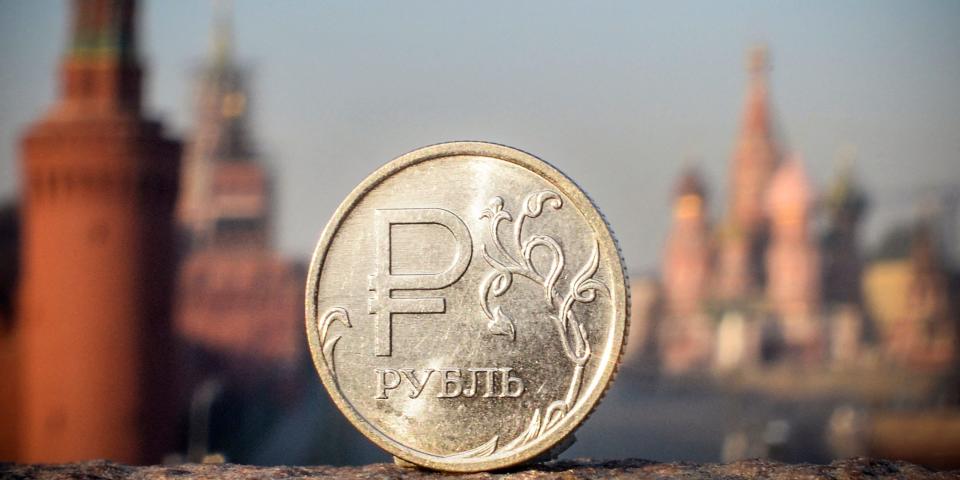Russia's central bank sounds alarms on the economy as the falling ruble and record labor shortage add inflationary pressures

Russia's central bank sounded alarms on inflation amid the falling ruble and a record labor shortage.
Policymakers kept interest rates steady on Friday but signaled an increase may be coming soon.
"The option of hiking the rate was considered, but by consensus we decided to hold the rate, but tighten the signal."
Russia's central bank sounded alarms on the economy Friday as the falling ruble and a record labor shortage add inflationary pressures.
Policymakers kept the benchmark interest rate steady at 7.5%, where it has been since September, but signaled an increase may be coming soon.
"The option of hiking the rate was considered, but by consensus we decided to hold the rate, but tighten the signal," Governor Elvira Nabiullina said at a news conference, according to Reuters, adding that "the likelihood of a rate hike has increased."
In fact, central bankers discussed a hike of 25-75 basis points, she said. That's as data out Wednesday showed weekly consumer prices jumped sharply.
A rate hike would be the first since the central bank lifted the key rate to 20% in the immediate aftermath of Russia's Ukraine invasion last year, when it sought to stabilize the ruble and financial markets after Western sanctions froze the Kremlin's currency reserves.
Since then, the central bank has brought rates back down as inflation has cooled. But its new projections foresee inflation accelerating to 4.5%-6.5% by the end of the year, up from 3.5%.
"Accelerating fiscal spending, deteriorating terms of foreign trade and the situation in the labor market remain pro-inflationary risk drivers," the central bank said Friday, noting that inflation risks are leaning even more to the upside.
The warning comes as Russia has shifted to a total war economy, while Ukraine's newly launch counteroffensive points to more defense spending by the Kremlin.
Meanwhile, the ruble has tumbled against the dollar by about 14% so far in 2023, making imports more expensive and stoking inflation further. On Friday, the ruble fell past 83 to the dollar, hitting the lowest in more than two months.
Other data have shown Russia is suffering from a record labor shortage as Vladimir Putin's war on Ukraine delivered a major shock to the workforce. The military mobilized 300,000 troops last year and plans to mobilize hundreds of thousands more this year, while an estimated 200,000 have been killed or wounded in Ukraine.
And the mass exodus of Russians to other countries to escape military service or economic hardship has made the labor shortage even worse. One recent study estimated that 1.3 million young workers left the labor force last year alone, representing a "massive brain drain."
The labor shortage also contributed to a sharp drop last month in Russia's industrial production, which tumbled 5% from the prior month.
Read the original article on Business Insider

 Yahoo Sport
Yahoo Sport 





































